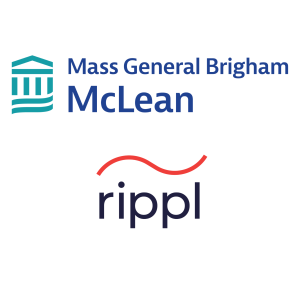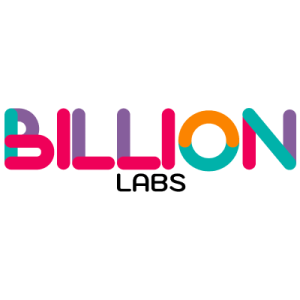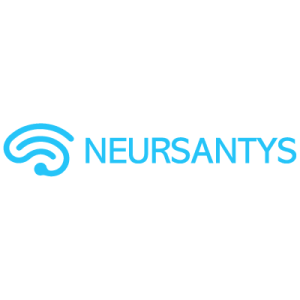- Creating a Framework for Large Language Models for Caregiver Support in Dementia
Ipsit Vahia, Rachel Sava, McLean Hospital. Joseph Chung, Rippl. The CAREALL pilot project explored the use of large language models (LLMs) to support caregivers of individuals with dementia.
- Chronic Pain Monitoring and Assessment for LTC Residents with ADRD by AI Sensing
Xian Du, Joohyun Chung, UMass Amherst. Shishir Prasad, BD.
In this project, we will develop the approach for the continuous monitoring of long-term care (LTC) resident’s behavioral and physiological signals over extended durations using cameras and wearable sensors.
- An AI-powered Digital Therapy Assistant for Monitoring and Treating Cognitive Impairment
Jennifer Flexman, Moneta Health. Michael Busa, UMass Amherst. This project will develop AI algorithms used by Moneta™ digital therapy assistant to monitor the speech of individuals with mild cognitive impairment and early dementia during cognitive rehabilitation therapy.
- Towards an AI-based Care Plan for ADRD Caregiver-patient Dyads
G. Antonio Sosa-Pascual, REOFTech. Michael Busa, UMass Amherst. This project aims to collect data from wearables and smart home sensors to determine the state, rate, and direction of change in dementia patient agitation and caregiver well-being.
- An Objective Assessment Tool for Evaluating Functioning in Older Adults
Ehsan Adeli, Victor W. Henderson, Stanford University. The proposed project aims to design a mobile app that not only instructs and records individuals performing Short Physical Performance Battery (SPPB) tests but also uses these data for predictive analysis to monitor and quantify the risk of cognitive impairment over time, utilizing video data analyzed for motor-cognitive relationships.
- An Equitable ML-based Music Intervention for At-risk Older Adults
Jennifer Rae Myers, Chelsea S. Brown, Musical Health Technologies. This pilot project focused on developing an equitable machine learning (ML)-based music intervention for older adults at risk for Alzheimer’s disease. The study progressed through two phases, beginning with IRB approvals and participant recruitment in mid-2024.
- A Digital Dyadic Coach to Promote Oral Health Self-Care in Older Adults
Inbal Billie Nahum-Shani, University of Michigan. Vivek Shetty, UCLA. Guy Shani, Michigan State University. Susan A. Murphy, Harvard University. This project seeks to develop a novel AI-powered digital tool to empower older adults with Alzheimer’s disease and related dementias (AD/ADRD) to engage in oral self-care in at-home settings.
- A Downloadable Oscillometric BP Monitor for All Smartphones with No Attachments
Edward Jay Wang, Billion Labs Inc. This project aims to establish accessible early screening of hypertension by democratizing BP monitoring. We aim to achieve this by converting the billions of smartphones into oscillometric BP monitors without hardware add-ons.
- Protecting Patients against Phishing Attacks using AI-enabled Agents
Gang Wang, University of Illinois at Urbana-Champaign. Roopa Foulger, OSF. This project will design, prototype, evaluate, and potentially deploy an AI-enabled voice agent to assist patients (especially older adults) to better recognize phishing messages and reduce cybersecurity risks during patient outreach and communications.
- AI-Based Video App for At-Home Monitoring of Motor Functions in PD Patients
Hamed Tabkhi, Mona Azarbayjani, ForesightCares Inc. Sanjay Iyer, Memory & Movement Charlotte. The pilot project focused on developing and validating an AI-based visual assessment (AVA) app for at-home monitoring of motor function in older adults with Parkinson’s Disease (PD).
- Accelerating Balance Recovery Using Adaptive EVS Therapy
John Ralston, Neursantys Inc. VP Nguyen, UMass Amherst. This project will develop ML-driven methods to adapt EVS stimulus parameters to each patient’s unique sensory and motor impairment profile to increase the effectiveness of NEURVESTA’s current treatment protocol.
 Ipsit Vahia, Rachel Sava, McLean Hospital. Joseph Chung, Rippl. The CAREALL pilot project explored the use of large language models (LLMs) to support caregivers of individuals with dementia.
Ipsit Vahia, Rachel Sava, McLean Hospital. Joseph Chung, Rippl. The CAREALL pilot project explored the use of large language models (LLMs) to support caregivers of individuals with dementia. Xian Du, Joohyun Chung, UMass Amherst. Shishir Prasad, BD. In this project, we will develop the approach for the continuous monitoring of long-term care (LTC) resident’s behavioral and physiological signals over extended durations using cameras and wearable sensors.
Xian Du, Joohyun Chung, UMass Amherst. Shishir Prasad, BD. In this project, we will develop the approach for the continuous monitoring of long-term care (LTC) resident’s behavioral and physiological signals over extended durations using cameras and wearable sensors. Jennifer Flexman, Moneta Health. Michael Busa, UMass Amherst. This project will develop AI algorithms used by Moneta™ digital therapy assistant to monitor the speech of individuals with mild cognitive impairment and early dementia during cognitive rehabilitation therapy.
Jennifer Flexman, Moneta Health. Michael Busa, UMass Amherst. This project will develop AI algorithms used by Moneta™ digital therapy assistant to monitor the speech of individuals with mild cognitive impairment and early dementia during cognitive rehabilitation therapy. G. Antonio Sosa-Pascual, REOFTech. Michael Busa, UMass Amherst. This project aims to collect data from wearables and smart home sensors to determine the state, rate, and direction of change in dementia patient agitation and caregiver well-being.
G. Antonio Sosa-Pascual, REOFTech. Michael Busa, UMass Amherst. This project aims to collect data from wearables and smart home sensors to determine the state, rate, and direction of change in dementia patient agitation and caregiver well-being. Ehsan Adeli, Victor W. Henderson, Stanford University. The proposed project aims to design a mobile app that not only instructs and records individuals performing Short Physical Performance Battery (SPPB) tests but also uses these data for predictive analysis to monitor and quantify the risk of cognitive impairment over time, utilizing video data analyzed for motor-cognitive relationships.
Ehsan Adeli, Victor W. Henderson, Stanford University. The proposed project aims to design a mobile app that not only instructs and records individuals performing Short Physical Performance Battery (SPPB) tests but also uses these data for predictive analysis to monitor and quantify the risk of cognitive impairment over time, utilizing video data analyzed for motor-cognitive relationships. Jennifer Rae Myers, Chelsea S. Brown, Musical Health Technologies. This pilot project focused on developing an equitable machine learning (ML)-based music intervention for older adults at risk for Alzheimer’s disease. The study progressed through two phases, beginning with IRB approvals and participant recruitment in mid-2024.
Jennifer Rae Myers, Chelsea S. Brown, Musical Health Technologies. This pilot project focused on developing an equitable machine learning (ML)-based music intervention for older adults at risk for Alzheimer’s disease. The study progressed through two phases, beginning with IRB approvals and participant recruitment in mid-2024. Inbal Billie Nahum-Shani, University of Michigan. Vivek Shetty, UCLA. Guy Shani, Michigan State University. Susan A. Murphy, Harvard University. This project seeks to develop a novel AI-powered digital tool to empower older adults with Alzheimer’s disease and related dementias (AD/ADRD) to engage in oral self-care in at-home settings.
Inbal Billie Nahum-Shani, University of Michigan. Vivek Shetty, UCLA. Guy Shani, Michigan State University. Susan A. Murphy, Harvard University. This project seeks to develop a novel AI-powered digital tool to empower older adults with Alzheimer’s disease and related dementias (AD/ADRD) to engage in oral self-care in at-home settings. Edward Jay Wang, Billion Labs Inc. This project aims to establish accessible early screening of hypertension by democratizing BP monitoring. We aim to achieve this by converting the billions of smartphones into oscillometric BP monitors without hardware add-ons.
Edward Jay Wang, Billion Labs Inc. This project aims to establish accessible early screening of hypertension by democratizing BP monitoring. We aim to achieve this by converting the billions of smartphones into oscillometric BP monitors without hardware add-ons. Gang Wang, University of Illinois at Urbana-Champaign. Roopa Foulger, OSF. This project will design, prototype, evaluate, and potentially deploy an AI-enabled voice agent to assist patients (especially older adults) to better recognize phishing messages and reduce cybersecurity risks during patient outreach and communications.
Gang Wang, University of Illinois at Urbana-Champaign. Roopa Foulger, OSF. This project will design, prototype, evaluate, and potentially deploy an AI-enabled voice agent to assist patients (especially older adults) to better recognize phishing messages and reduce cybersecurity risks during patient outreach and communications. Hamed Tabkhi, Mona Azarbayjani, ForesightCares Inc. Sanjay Iyer, Memory & Movement Charlotte. The pilot project focused on developing and validating an AI-based visual assessment (AVA) app for at-home monitoring of motor function in older adults with Parkinson’s Disease (PD).
Hamed Tabkhi, Mona Azarbayjani, ForesightCares Inc. Sanjay Iyer, Memory & Movement Charlotte. The pilot project focused on developing and validating an AI-based visual assessment (AVA) app for at-home monitoring of motor function in older adults with Parkinson’s Disease (PD). John Ralston, Neursantys Inc. VP Nguyen, UMass Amherst. This project will develop ML-driven methods to adapt EVS stimulus parameters to each patient’s unique sensory and motor impairment profile to increase the effectiveness of NEURVESTA’s current treatment protocol.
John Ralston, Neursantys Inc. VP Nguyen, UMass Amherst. This project will develop ML-driven methods to adapt EVS stimulus parameters to each patient’s unique sensory and motor impairment profile to increase the effectiveness of NEURVESTA’s current treatment protocol.